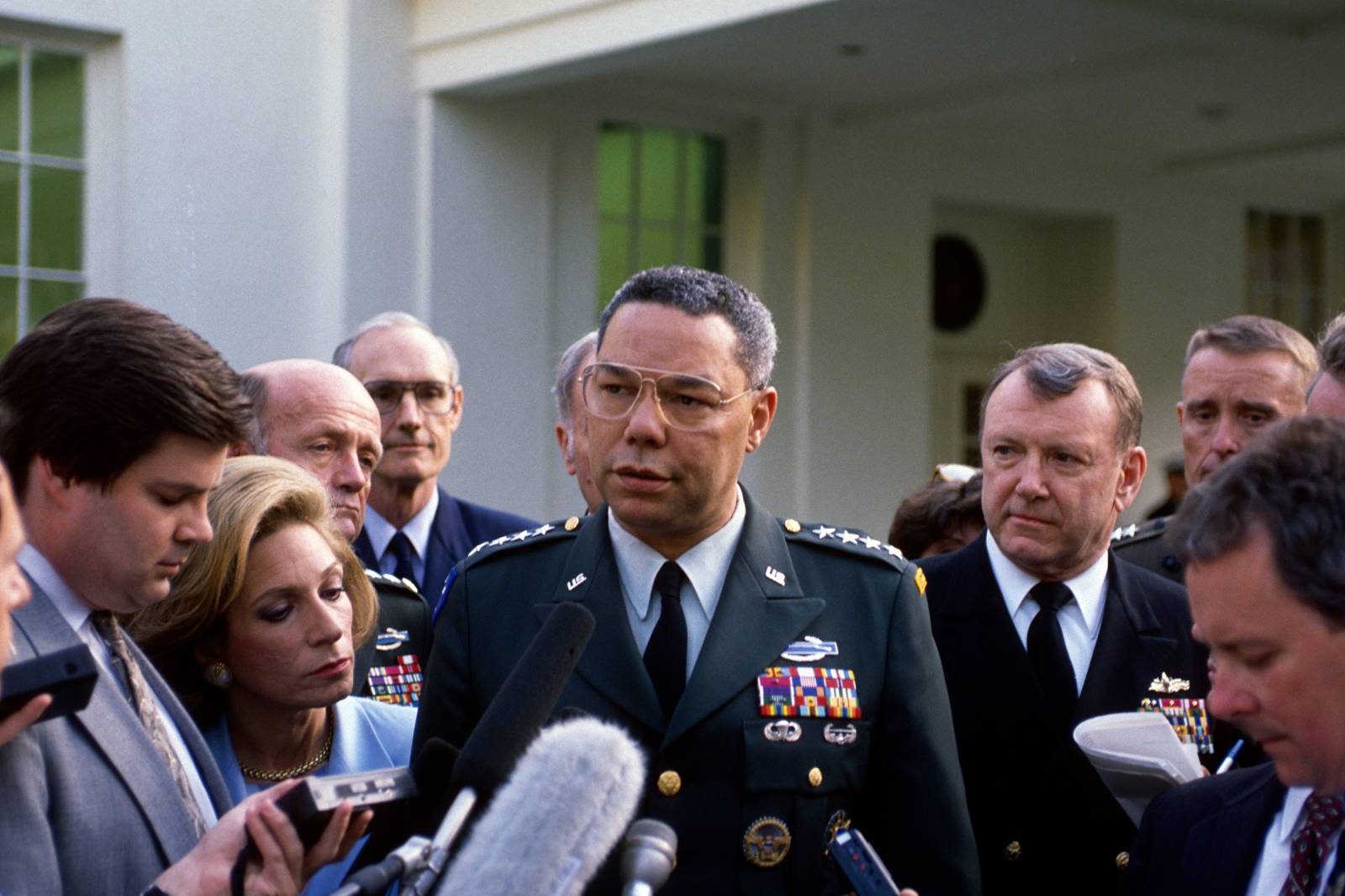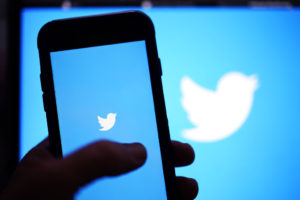
It was the dawn of post-9/11 America. Wounds were fresh and Americans still angry, but the public did not look to President George W. Bush nor Vice President Dick Cheney for answers. Instead, they looked to Secretary of State Colin Powell, a trusted and plainspoken figure who had long been enmeshed in the American military and foreign policy ecosystem. The administration knew Powell’s political capital was far greater than anyone else’s, and they would exploit it to force a war in Iraq. Polling data highlighted Powell’s trustworthiness in the eyes of the public, and the President and Vice President’s lack thereof. If anyone was going to make the case for war it would have to be Powell. So, on a February day in 2003, Secretary Powell sat before the United Nations General Assembly and delivered false information about a weapons program that simply did not exist. This speech would trigger the invasion of Iraq and lead to hundreds of thousands of needless deaths. This speech was included in the first line of many of his obituaries following his death from covid-related complications at the age of 84 in mid-October of this year. As many online offered condolences, others were quick to point out his role in the Iraq war. Powell would claim to be unaware of the extent of the exaggerations of information in the speech, but such arguments would be cold comfort to those who suffered through the war.
Prior to the UN speech, Powell’s legacy was one of great distinction. He was born in Harlem, the son of immigrants. Though he never excelled in school, he found his calling in joining his college’s ROTC. He went on to join the military and made his way through the ranks to become a four-star general and eventually the first Black Secretary of State. For much of his career, he was an honest presence in a country wary of warmongering. He crafted the Powell Doctrine, his attempt at preventing endless wars by ensuring that they only be waged if there was popular support, with a clear mission and exit strategy. This doctrine would be ignored in the case of the Iraq war. Contradictory moments in the life of a public figure are hard to rectify, particularly in today’s climate. Legacy politics lack nuance and demand simplicity, but assessing how someone lived and what their impact means is not an easy thing to do in under 280 characters. It is made particularly challenging by a figure who never did fit into a neat political box.
Powell had a hyper-awareness of his legacy and that it had been tarnished during his tenure at the White House. Though a member of the GOP for much of his career, would go on to endorse Barack Obama in 2008. He grew disillusioned with the Republican party and its burgeoning “dark vein of intolerance.” He would continue to endorse Democrats until his death. Powell always viewed himself first and foremost as general, allowing this to guide his political viewpoints. His own departure from the Bush Administration following the Iraq War push likely also contributed to his disdain for Republican politics. Two years after his UN speech, he told Barbara Walters of ABC News that his speech to the United Nations had been “painful” for him personally and would forever be a “blot” on his record. He spent the years following this speech expressing regret for participating in the Bush Administration’s toxic propaganda.
Assessing Colin Powell’s legacy is no easy feat. With a healthy dose of cynicism, anyone could claim, and many have, that Powell merely switched parties and expressed remorse for his actions when it became politically convenient to do so, when he wanted to be remembered fondly.
It is also difficult to overstate the turmoil that this speech generated, as Powell leveraged, either knowingly or unknowingly, his integrity to advocate for the invasion of Iraq. For this, he should not be forgiven. However, it is worth considering the rarity of a figure like Powell in today’s political universe.
In an era of brashness, of the never-apologize strategy, of Cuomos and Trumps alike, there existed a figure who reassessed his actions soberly and publicly. Maybe he kept his legacy in mind as he did so, but maybe that doesn’t really matter. Reflection is an anomaly. This act of repentance will mean something to men and women in positions of political pressure like Powell found himself in 2003. His expressions of remorse and willingness to unpack his mistakes will shape how future Americans and their government approach war. Whether you believe that Powell was a war criminal or a trailblazer, he made it clear that he was human and that he made a mistake. For this alone, he should be celebrated.



